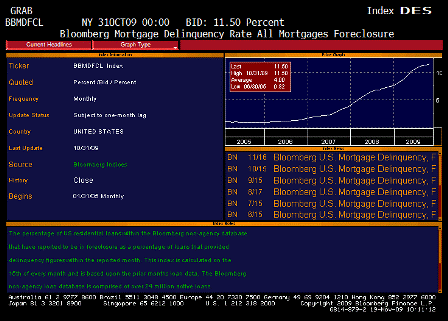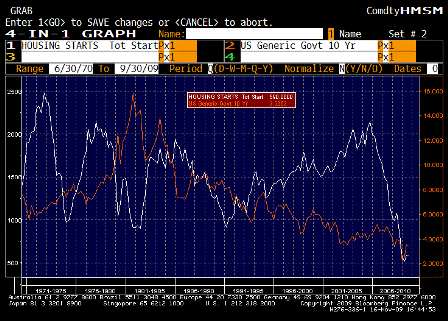[Skip to the end]
Karim writes:
DOVISH-Focus largely on headwinds to growth; token paragraph (new) on the dollar; repeats the ‘2Es’ (exceptionally low for an extended period)
Excerpts
* Today, financial conditions are considerably better than they were then, but significant economic challenges remain. The flow of credit remains constrained, economic activity weak, and unemployment much too high. Future setbacks are possible.
* My own view is that the recent pickup reflects more than purely temporary factors and that continued growth next year is likely. However, some important headwinds–in particular, constrained bank lending and a weak job market–likely will prevent the expansion from being as robust as we would hope.
* access to credit remains strained for borrowers who are particularly dependent on banks, such as households and small businesses.. the fraction of small businesses reporting difficulty in obtaining credit is near a record high, and many of these businesses expect credit conditions to tighten further.
* With the job market so weak, businesses have been able to find or retain all the workers they need with minimal wage increases, or even with wage cuts. Indeed, standard measures of wages show significant slowing in wage gains over the past year. Together with the reduction in hours worked, slower wage growth has led to stagnation in labor income. Weak income growth, should it persist, will restrain household spending. The best thing we can say about the labor market right now is that it may be getting worse more slowly… a number of factors suggest that employment gains may be modest during the early stages of the expansion.
* I expect moderate economic growth to continue next year. Final demand shows signs of strengthening, supported by the broad improvement in financial conditions. Additionally, the beneficial influence of the inventory cycle on production should continue for somewhat longer. Housing faces important problems, including continuing high foreclosure rates, but residential investment should become a small positive for growth next year rather than a significant drag, as has been the case for the past several years. Prospects for nonresidential construction are poor, however, given weak fundamentals and tight financing conditions.
* The foreign exchange value of the dollar has moved over a wide range during the past year or so. When financial stresses were most pronounced, a flight to the deepest and most liquid capital markets resulted in a marked increase in the dollar. More recently, as financial market functioning has improved and global economic activity has stabilized, these safe haven flows have abated, and the dollar has accordingly retraced its gains. The Federal Reserve will continue to monitor these developments closely. We are attentive to the implications of changes in the value of the dollar and will continue to formulate policy to guard against risks to our dual mandate to foster both maximum employment and price stability. Our commitment to our dual objectives, together with the underlying strengths of the U.S. economy, will help ensure that the dollar is strong and a source of global financial stability.
* The Federal Open Market Committee continues to anticipate that economic conditions, including low rates of resource utilization, subdued inflation trends, and stable inflation expectations, are likely to warrant exceptionally low levels of the federal funds rate for an extended period.
[top]



